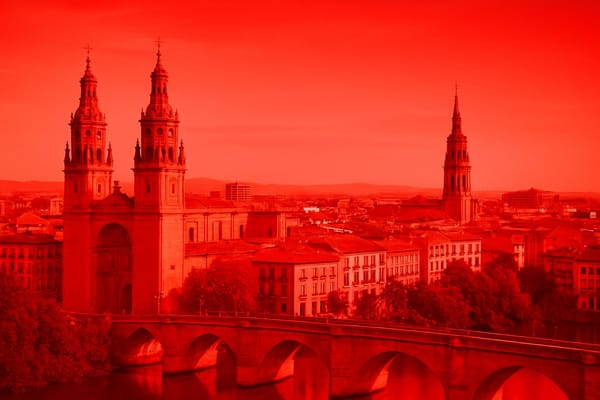Montpellier
Discover top things to do: historic old town, Mediterranean beaches, lively culture & food.

Important things to know about Montpellier
Montpellier, France is a vibrant and fast-growing Mediterranean city in Occitanie known for its mix of historic charm and modern dynamism, offering a high quality of life that attracts students, professionals and families alike; with a large and diverse student population centered around the University of Montpellier, the city cultivates a youthful energy that fuels culture, research and innovation, while a temperate Mediterranean climate brings long sunny seasons and mild winters that shape outdoor living and the local pace of life. The urban landscape blends narrow, shaded streets and preserved medieval quarters with striking contemporary architecture and thoughtful urban planning, and the extensive tram network and bike-friendly streets make daily mobility convenient and sustainable. Economically, Montpellier has become a hub for healthcare, biotechnology, digital industries and start-ups, supported by research institutions and technology parks that link academic talent to entrepreneurial activity; this economic diversity underpins a resilient job market and growing international appeal. Local gastronomy and market culture emphasize fresh Mediterranean produce and regional wines, contributing to a lively culinary scene without relying on tourist spectacles, while neighbourhood cafés and evolving creative spaces foster a strong sense of community. With frequent high-speed rail connections and an international outlook, Montpellier continues to expand its cultural and economic footprint in southern France, striking a balance between tradition and innovation that makes living or investing in Montpellier, France an attractive prospect for those seeking a dynamic urban environment on the edge of the Mediterranean.
Sightseeing hot-spots in Montpellier
Montpellier, France, is a vibrant city where historic charm meets contemporary design, and every corner invites discovery. Start your sightseeing in the heart of the city at the Place de la Comédie, a bustling plaza framed by cafés and street performers that leads into the labyrinthine Écusson, Montpellier’s well-preserved medieval old town. Wandering these narrow streets reveals hidden courtyards, artisan shops and lively markets; the atmosphere makes it easy to imagine the city’s long cultural history while enjoying the modern buzz of student life.
A short stroll from the center takes you to the serene Promenade du Peyrou, with its imposing aqueduct and an elegant Arc de Triomphe that offers sweeping views over the surrounding rooftops. Art lovers should not miss the Musée Fabre, one of France’s finest provincial museums, where classical and modern works create an enriching cultural stop on any Montpellier sightseeing itinerary. Nearby, the striking Cathédrale Saint-Pierre stands as a Gothic landmark with its twin towers and soaring interior, providing a dramatic contrast to the clean geometric lines of the modern Antigone district designed by Ricardo Bofill.
Beyond monuments and museums, Montpellier’s green spaces and Mediterranean light are striking: the Jardin des Plantes, Europe’s oldest botanical garden, provides a peaceful respite, while the city’s proximity to the Mediterranean coast makes day trips to sandy beaches effortless. For travelers seeking an authentic mix of history, art, and relaxed coastal living, Montpellier’s sightseeing highlights create an ideal French getaway that balances tradition with cosmopolitan energy.
Hotels to enjoy in Montpellier
Montpellier is a vibrant city where hotels in Montpellier range from stylish boutique hotels tucked into the historic center to large, modern properties that cater to business and leisure travelers alike. Strolling from the Place de la Comédie to tree-lined boulevards, visitors find accommodations that emphasize local design, Provençal flavors, and easy access to tram lines connecting to the Mediterranean coast. Many Montpellier hotels prioritize comfort and eco-friendly practices, offering quiet rooms, free Wi-Fi, and concierge services to help plan day trips to nearby vineyards or the beaches of Palavas-les-Flots. Whether you search for affordable stays, family-friendly suites, or luxury rooms with rooftop terraces, the city’s diverse portfolio ensures options for couples, solo travelers, and groups seeking memorable experiences.
Choosing the right Montpellier hotel often comes down to location, amenities, and value, and online reviews and photos make it easier to compare properties before booking. For travelers focused on convenience, hotels near the train station or tram stops provide quick access to the airport and regional destinations; culture seekers will appreciate stays close to museums, cafes, and the lively student quarter. Business visitors will find well-equipped meeting rooms and dedicated workspaces, while those on holiday can favor hotels that offer bike rentals and curated local tips. With a growing reputation for gastronomy and design, Montpellier hotels combine southern charm and modern functionality, making the city an attractive base for exploring Occitanie and beyond.
Restaurants to try in Montpellier
Montpellier is a vibrant culinary destination where Montpellier restaurants blend traditional Languedoc flavors with modern creativity. Strolling from the Place de la Comédie through the historic center, visitors encounter a mix of intimate bistros, contemporary fine dining establishments, and lively brasseries that celebrate Mediterranean flavors and seasonal local produce. The city's chefs emphasize fresh seafood, aromatic herbs, regional wines and olive oils, creating menus that reflect the sun-drenched terroir of southern France. Whether you're seeking a cozy neighborhood spot or an elegant tasting menu, the variety of restaurants in Montpellier offers something for every palate and budget, making the city a must-visit on any French gastronomic itinerary.
Food lovers exploring Montpellier will notice a strong focus on authenticity and innovation, with many restaurants sourcing ingredients from nearby markets and farms to craft dishes that honor the region’s culinary heritage. The burgeoning food scene includes rooftop terraces and riverside dining in neighborhoods like Port Marianne, while historic quarters provide rustic charm and intimate service. For travelers researching Montpellier restaurants or searching for the best places to eat, terms like Mediterranean cuisine, local wines, seafood specialties, and artisan producers often appear in reviews and guides. With a lively café culture, seasonal menus, and establishments ranging from casual to Michelin-starred, Montpellier stands out as a dynamic hub for gastronomy in the South of France, rewarding those who explore its diverse and flavorful dining options.
Best shopping stops in Montpellier
Montpellier shopping is a delightful blend of historic charm and modern retail energy, centered around the winding lanes of the Écusson where independent boutiques, concept stores and artisan ateliers sit cheek by jowl with cozy cafés. Stroll from the lively Place de la Comédie into narrow streets and you’ll find everything from cutting-edge designer fashion and curated vintage shops to small galleries showcasing regional crafts. For a more conventional shopping day, the Polygone mall offers a wide range of international brands, dining options and entertainment, while open-air markets and weekly stalls spill local color into plazas, offering fresh produce, textiles and one-off finds that make perfect souvenirs of a Montpellier getaway.
Beyond the main arteries, the city’s shopping highlights include creative hubs and food-focused destinations where gourmet food lovers and design hunters converge. Le Marché du Lez and market-lined neighborhoods near the Arceaux celebrate local makers, from ceramicists and perfumers to olive oil producers and Languedoc vintners, so you can shop with tastings in mind. Whether you’re seeking a standout outfit, a vintage treasure, or edible gifts to bring home, shopping in Montpellier pairs effortlessly with a slow café culture and easy tram links, making it simple to explore diverse districts and return laden with handmade keepsakes, regional specialties and contemporary fashion finds.
Nightlife highlights in Montpellier
Montpellier nightlife pulses with a mix of student energy and Mediterranean charm, making it a top destination for evening adventures. From the lively terraces around Place de la Comédie to the tucked-away cocktail bars in the Écusson historic center, nights here are vibrant and varied. Visitors can wander between chic bars serving inventive drinks and warm bistros where locals gather long after sunset. The city's compact layout means hop-on nights are easy: one minute you’re enjoying a relaxed sunset aperitif by the river, the next you’re dancing to a local DJ set or discovering intimate venues with energetic crowds.
For those seeking live performances, Montpellier offers a thriving scene of live music, jazz clubs and electronic venues that cater to all tastes, from indie acoustic shows to late-night house parties. The student population ensures affordable entry and diverse programming, while seasonal festivals boost the calendar with headline acts and pop-up events. Whether you prefer craft cocktails, rooftop views, or underground clubs, Montpellier nightlife blends historic ambiance with contemporary flair, promising memorable evenings for curious travelers and nightlife lovers alike.
Getting around in Montpellier
Montpellier offers convenient air and rail links that make it a smart gateway to the Occitanie region and the Mediterranean coast: Montpellier Méditerranée Airport sits a short drive from the city center and is served by a mix of scheduled and seasonal flights, with easy onward connections by shuttle buses, taxis, car hire and regional buses that bring travelers quickly into town; meanwhile the rail backbone is the central Montpellier Saint-Roch station, a well-located hub for TGV high-speed services to Paris and other major cities, plus extensive TER regional services across Occitanie to Nîmes, Béziers, Narbonne and beyond, and an auxiliary Montpellier Sud de France TGV stop on the outskirts for some long-distance services-local tram network lines and bus links efficiently connect the stations to the historic center, university districts and beaches, making transfers smooth for leisure and business visitors alike; whether you arrive by plane or train, Montpellier’s transport infrastructure provides flexible options for fast city access, reliable regional travel and connections to France’s broader high-speed rail network.
Culture must-see's in Montpellier
Montpellier, France, is a vibrant cultural hub where historic charm and contemporary creativity meet along sunlit streets. Strolling from the bustling Place de la Comédie to the serene terraces of the Promenade du Peyrou, visitors encounter a city shaped by medieval alleys, bold Antigone architecture by Ricardo Bofill, and the soaring spires of Saint-Pierre Cathedral. Art lovers flock to the Musée Fabre, whose collections of European painting anchor Montpellier’s reputation for visual arts, while independent galleries and street art in the Écusson quarter showcase emerging talent. The presence of the ancient Montpellier University, with its long tradition in medicine and learning, adds an intellectual pulse to the city’s cultural calendar and draws scholars and students who keep the cafes and bookstores lively year-round.
Montpellier’s cultural highlights extend beyond monuments into a rich program of festivals and performance venues that make the city a must-visit destination for culture seekers. Annual events such as the Festival Radio France et Montpellier and contemporary dance showcases bring international music and movement to outdoor stages and intimate theaters, complemented by the dynamic programming at the Opéra Comédie and multidisciplinary centers. Food and wine are integral to the cultural experience: local markets, Mediterranean seafood, and Languedoc wines invite slow, convivial dining that reflects regional identity. Whether you’re exploring museums, catching a festival performance, or simply enjoying the city’s lively squares, Montpellier offers a layered cultural experience that highlights the best of southern France’s art, history, and lifestyle.
History of Montpellier
Montpellier’s story stretches from a modest medieval market town into a vibrant modern city in southern France, embodying centuries of trade, learning, and cultural exchange on the Mediterranean fringe. Emerging in the Middle Ages as a bustling port and commercial hub for the Languedoc region, the city grew rapidly thanks to maritime routes and the wool and spice trades, attracting merchants and scholars from across Europe and the Mediterranean. By the 12th and 13th centuries Montpellier had established itself as an important civic center with a flourishing medieval identity, notable for its religious diversity, artisanal neighborhoods, and the early formation of civic institutions that allowed the town to exercise a degree of autonomy. The foundation and rise of the University of Montpellier, one of the oldest medical schools in Europe, transformed the city into a beacon of learning: students and physicians from across France and beyond came here to study medicine, law, and the liberal arts, cementing Montpellier’s reputation in the annals of the history of Montpellier, France.
The later centuries saw Montpellier navigating the tumult of the Renaissance, the Black Death, and the Wars of Religion, when the city became a stronghold of Protestant resistance and endured sieges that tested its resilience. The 17th century brought urban developments such as the elegant terraces and promenades, while the Enlightenment and 19th-century industrialization expanded civic infrastructure and rail connections, integrating Montpellier more deeply into the economic life of France. In the 20th and 21st centuries, Montpellier has reinvented itself again: the university’s modern resurgence, a booming student population, contemporary architecture, and cultural festivals have all helped the city mature into a cosmopolitan center of innovation and heritage in Occitanie. Today the history of Montpellier is visible in its preserved medieval streets, grand facades, and lively squares, where the layers of history, from Roman-influenced trade to modern urban planning, create a compelling narrative for visitors and scholars exploring the evolution of southern French cities.



